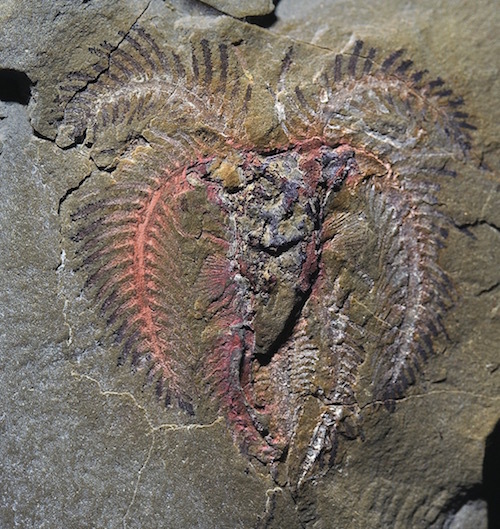Discovery Institute's Blog, page 145
July 18, 2015
When It Comes to a Humpback Breaching, "The Language Fails"
The Northwest premiere of the new Illustra Media documentary Living Waters: Intelligent Design in the Oceans of the Earth is coming up August 7 in Seattle. Don't forget to register for this one.
Want a little taste of what's in store? Click on the image above to watch a brief excerpt from the segment on whales. As Discovery Institute's Paul Nelson comments, "The language fails" in trying to describe the awesome beauty of a humpback breaching, the length of a city bus and leaping from the wa...
July 17, 2015
In Europe, Euthanasia Is Not a Human Right

Two cases were brought to the European Court of Human Rights, hoping for a Canada-style EU-wide imposition of euthanasia as a fundamental right. Case dismissed. From the story in the Telegraph:
The European Court of Human Rights has rejected a right-to-die case brought by a paralysed former builder and the widow of man who had locked-in syndrome.
Paul Lamb and Jane Nicklinson, whose 58-year-old husband Tony died more than two years ago, brought the case at the court in Strasbourg -- the culm...
Biophysicist Matt Baker Is an Intelligent Design Critic Who Doesn't Understand Irreducible Complexity
Time flies. Published in 1996, Michael Behe's book Darwin's Black Box represented a major development in the modern articulation of the scientific argument for intelligent design. The book will have its 20th anniversary next year. Behe was in town this week for our Summer Seminar on Intelligent Design, and we were talking about this -- and about how despite the passage of time, critics still object ineffectually to his argument based on irreducible complexity (IC). They make the same argumen...
ENCODE Critics: Evolution Proves Our Genome Is Junky ... Which Proves Evolution

Editor's note: This is Part 3 of a 4-part series on ENCODE that Casey Luskin has been publishing this year in Salvo Magazine. Parts 1, 2, and 3 have already been published there. Part 4 will be published in Salvo later this year. The prelude can be found here.
The ENCODE project presented strong, experimentally derived evidence that the vast majority of our genome has important biochemical functions, but the specific functions of most of our six billion nucleotides have yet to be determined....
July 16, 2015
Microevolution versus Macroevolution: Two Mistakes

I often observe that in discussions of evolution, both evolution skeptics and those who embrace neo-Darwinian evolution are prone to make one of two significant mistakes. Both stem from a failure to distinguish between microevolution and macroevolution.
The textbook for a genetics course I took at the University of Waterloo defined evolution as "changes in allele frequencies in a population over time." An allele can be described as a variation of a particular gene. Defining evolution in this...
Ethical Stem Cells Grow Tiny Human Hearts

Remember when THE SCIENTISTS! insisted that embryonic stem cells and human cloning were the ONLY HOPE to create a vibrant regenerative medical sector? People bought the mendacity, and as one consequence, California is now stuck with the borrow-and-spend-billions boondoggle known as the California Institute for Regenerative Medicine.
One Japanese scientist saw his own daughters as embryos under a microscope and invented induced pluripotent stem cells, that is, stem cells (undifferentiated cel...
New Fossils Before and After the Cambrian, What Do They Show?

To understand a fossil bed, it's important to know what came before and after it (or above and below it, to be more precise). The explosive burst of new body plans called the Cambrian explosion is undisputed among paleontologists, even those who disagree with the ID understanding Stephen Meyer argues for in Darwin's Doubt. Recently, some new fossils before and after the explosion came to light. Let's see what kind of context they provide -- and evaluate the evolutionary spin given in the rep...
July 15, 2015
Listen: Nancy Pearcey on Hegel and the Spiritualized View of Evolution

On a new episode of ID the Future podcast, Casey Luskin interviews Discovery Institute Center for Science & Culture Fellow Nancy Pearcey. Discussing her new book, Finding Truth: 5 Principles for Unmasking Atheism, Secularism, and Other God Substitutes, Pearcey describes the influential spiritualized view of evolution, tracing it back to Hegel's "soul of the world." This idea gave birth to the postmodern view of the individual as a product of social forces. This podcast interview was based up...
For Next Week's 90th Scopes Trial Anniversary, We've Got Something Special Planned
Next Tuesday, July 21, is the 90th anniversary of the Scopes "Monkey" Trial, the day the case was decided, and we've got something special in store for you to mark the occasion. Stephen Meyer had the leading hand in it. David Berlinski, Paul Nelson, Douglas Axe, Ann Gauger, Casey Luskin, and I also pitched on. What is it? Well, you'll have to check back here on Tuesday to find out.
As you know, the Scopes Trial is the source for the (historically misleading) film Inherit the Wind, which stil...
Newer Chimp Hands Are Irrelevant to Human Exceptionalism

On even the slightest pretexts, science reporting seeks to undermine the exceptional place of human beings in nature.
Case in point? A study in the journal Nature Communications, "The evolution of human and ape hand proportions," concludes that human hands are less sophisticated than those of chimps. Never mind how much more we have accomplished with ours. Now watch how this is spun as an attack on human exceptionalism. For example, here is the story as reported by Discovery News:
Given our...
Discovery Institute's Blog
- Discovery Institute's profile
- 15 followers






